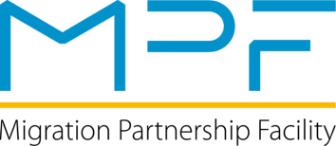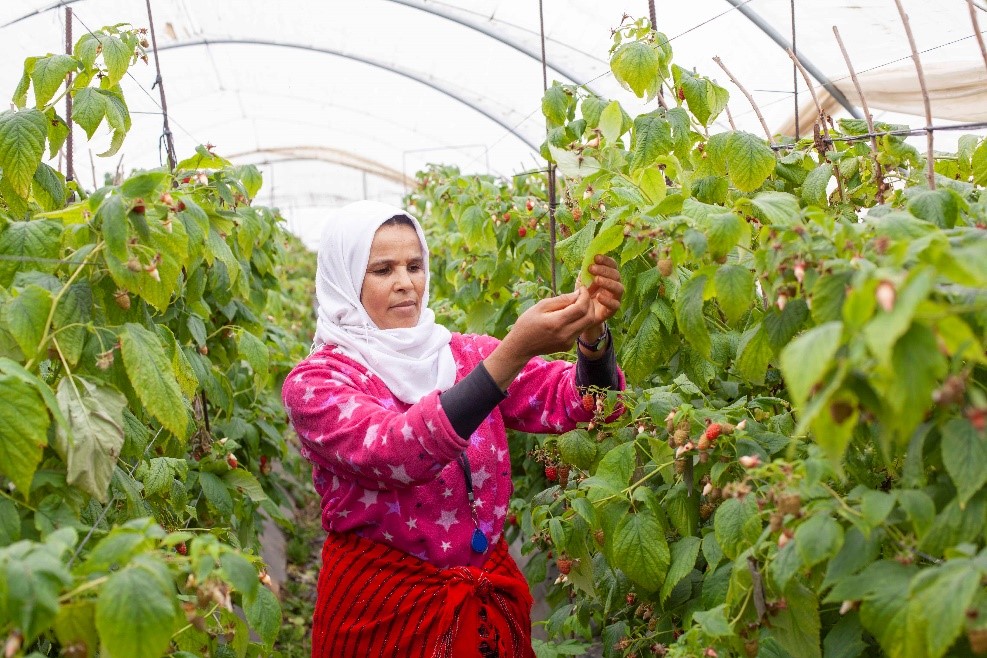The EU-funded project, entitled 'Women as Financially Independent Rural Actors - WAFIRA' has the concept of 'abundance' at its core. This abundance, which in fact, translates to WAFIRA in Arabic, is representative of the harvest season, for which thousands of Moroccan migrant women travel to Spain each year, but above all the development impact and socio-economic prospects for migrant workers brought about by the initiative.
Hanan, Fatima, Latifa and Fatiha are just four of the 250 women who have benefited from the training on self-employment and entrepreneurship skills provided by WAFIRA. They come from towns in north-western Morocco such as Khemisset and Ksar El Kebir and travel to Spain, year after year, aiming to secure a means of economic livelihood and a better future for their children and families. Their testimonies have been collected in short video clips (available below), in which the participants themselves recount their experience and what lies ahead for them: a new adventure that will lead them to put to the test the skills they acquired during their stay in Spain upon their return to Morocco.
In their decision to join WAFIRA, Hanan, Fatima, Latifa and Fatiha shared a common determination and thirst for learning, exemplifying the transformative impact of education and perseverance. Their involvement in the training courses nurtured their curiosity and ambition and proved to be an opportunity to put their dreams into practice: Fatima plans to open a small grocery shop; Fatiha aims to offer sewing services; Latifa will start a business selling snails; and Hanan is determined to create a stable source of income for herself through her bakery.
These women are among the thousands of Moroccan women who, as part of a decades-long programme of circular labour mobility between Spain and Morocco called GECCO, migrate seasonally to the other coast of the Mediterranean, where they contribute to the agricultural harvest of strawberries.
At the end of the harvest, usually in mid-summer, seasonal workers return to their families and rural communities, where they often lack stable employment. This time, unlike in previous years, WAFIRA participants returned equipped with new technical and practical knowledge about setting up and running a business, which will enhance their prospects for building a successful future as they embark on the launch their income-generating activities in Morocco. Their return not only marks the start of their own business journey, but is also accompanied by targeted training sessions to build on the skills the women have acquired during the mobility phase and assist them in fine-tuning their business plans, making themfinancially viable over time.
By supporting their passions and nurturing and growing their skills, WAFIRA has become the missing piece of the puzzle and has enabled hundreds of Moroccan migrant women to combine the benefits of the model offered by the circular mobility programme between Spain and Morocco with the golden opportunity to harness their skills and make an impact on their families and communities of origin.
The WAFIRA initiative has stood out since its inception in October 2021, in large part due to its alignment with Morocco's migration and employment policy priorities, for which it has garnered significant political support from key government institutions such as the Moroccan Ministry for Economic Inclusion, Small Business, Employment and Skills (MIEPEEC) and the National Agency for the Promotion of Employment and Skills (ANAPEC). The programme is also aligned with the objectives outlined in the European Commission's New Pact on Migration and Asylum.
WAFIRA is led and coordinated by the Secretary of State for Migration of the Spanish Ministry of Inclusion, Social Security and Migration, in close cooperation with the International Labour Organisation and Spanish Agri-Food Cooperatives-Andalusia. The project is co-funded by the European Union, and is contracted by the International Centre for Migration Policy Development (ICMPD) through the Migration Partnership Facility.
For more information about WAFIRA, you can view or download the project info-note here, or visit the project website here.
Video material
Píldora FATIMA: https://youtube/35jgv2twToA
Píldora FATIHA: https://youtu.be/iCAMwLyi-jI
Píldora LATIFA: https://youtu.be/rIkYrykjPmA
Píldora HANAN: https://youtu.be/YVAWvGaMIYY

